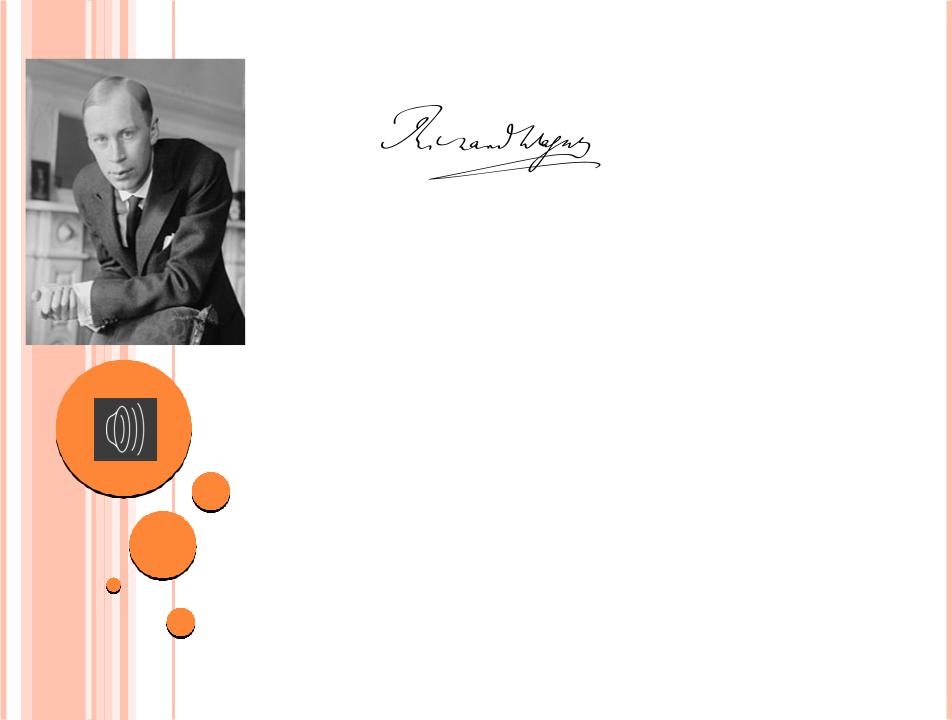
Vagner
.pptx
Sergei Sergeyevich Prokofiev
|
Was a Russian Soviet composer, pianist and conductor. As the creator |
||
|
of acknowledged masterpieces across numerous musical genres, he is |
||
|
regarded as one of the major composers of the 20th century. His works |
||
|
include such widely heard pieces as the March from The Love for Three |
||
|
Oranges, the suite Lieutenant Kijé, the ballet Romeo and Juliet—from which |
||
|
"Dance of the Knights" is taken—and Peter and the Wolf. Of the established |
||
|
forms and genres in which he worked, he created – excluding juvenilia – |
||
|
seven completed operas, seven symphonies, |
eight ballets, five piano |
|
|
concertos, two violin concertos, a cello concerto, a symphony-concerto for |
||
(27 April 1891 – 5 March 1953) |
cello and orchestra, and nine completed piano sonatas. |
||
A graduate of the St Petersburg Conservatory, Prokofiev initially made his |
|||
|
|||
|
name as an iconoclastic composer-pianist, achieving notoriety with a series of |
||
|
ferociously dissonant and virtuosic works for his instrument, including his |
||
|
first two piano concertos. In 1915, Prokofiev made a decisive break from the |
||
|
standard composer-pianist category with his orchestral Scythian Suite, |
||
|
compiled from music originally composed for |
a ballet commissioned |
|
|
by Sergei Diaghilev of the Ballets Russes. |
|
|
After the Revolution of 1917, Prokofiev left Russia with the official blessing of the Soviet minister Anatoly Lunacharsky, and resided in the United States, then Germany, then Paris, making his living as a composer, pianist and conductor.theatre. He enjoyed some success there – notably with Lieutenant Kijé, Peter and the Wolf, Romeo and Juliet, and perhaps above all with Alexander Nevsky.
The Nazi invasion of the USSR spurred him to compose his most ambitious work, an operatic version of Leo Tolstoy's War and Peace. In 1948, Prokofiev was attacked for producing "anti-democratic formalism." Nevertheless, he enjoyed personal and artistic support from a new generation of Russian performers, notably Sviatoslav Richter and Mstislav Rostropovich: he wrote his ninth piano sonata for the former and his Symphony-Concerto for the latter.
